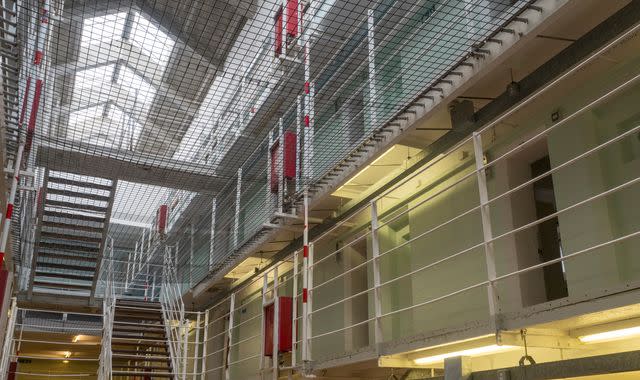'High risk' prisoners 'let out of jail' under early release scheme - despite PM assurance

Prisoners who have been assessed as "high risk" are being let out of jail under the government's early release scheme, a serving probation officer has told Sky News.
That is despite the prime minister telling the House of Commons on Wednesday that "no one" would be put on to the scheme "if they were deemed a threat to public safety".
The End of Custody Supervised License (ECSL) was introduced in October to ease overcrowding in jails across England and Wales. It allows certain prisoners to be released up to 70 days before the end of their sentence.
The government says sex offenders, terrorists, serious violent offenders, and those serving sentences of more than four years are not eligible.
Read more:
Wandsworth prison needs 'urgent improvement'
Pregnant women and new mothers may get reduced sentences
'High risk to the public'
"They could be high risk to the public as we assess them," Ben - which isn't his real name - told Sky News.
"Just because they're not doing a long sentence that doesn't mean people are not deemed to be a high risk in the public domain. And we wouldn't have time to put in place safeguards, or do any checks.
"I'm aware recently of at least two people who've come out, who we assess as high risk."
At Prime Minister's Questions, the Labour leader Sir Keir Starmer pointed to an example of one inmate who posed a danger to children and had a risk of domestic abuse and stalking, who had his release date brought forward.
This example was raised as part of an inspection into HMP Lewes by the prisons watchdog, which raised "serious concerns" about the implementation of the measure.
Emergency measure to relieve overcrowding
It comes as another emergency measure to relieve overcrowding, Operation Early Dawn, was confirmed to have been triggered by the Ministry of Justice (MoJ) on Wednesday.
It means defendants in police custody will remain there - and not be transferred to magistrates' courts for bail hearings, in case there isn't any space in jail cells for that prisoner if they are remanded in custody.
"It's administrative chaos," said David McNeill, from The Law Society.
"It's all falling apart. It's having a big impact on the running of the courts," he told Sky News.
"There are victims, witnesses, defendants, lawyers, magistrates and their staff all turning up for cases which are being cancelled at short notice."
Problems across prisons
Prisons across England and Wales are under pressure, and severely overcrowded.
Figures published on Friday showed 87,691 people are currently behind bars in England and Wales.
The number of people that can be held in "safe and decent accommodation" in prison, known as the "certified normal accommodation" or "uncrowded capacity", is considered by the MoJ to be 79,507.
That means the current overall system is at 110% capacity, or overcrowded.
An MoJ spokesperson said: "While we always ensure there is enough capacity to keep dangerous offenders behind bars, this scheme allows us to ease short-term pressures on prisons by moving some lower-level offenders at the end of their custodial term on to licence.
"These offenders will continue to be supervised under the strict conditions such as tagging and curfews, and the prison service can block the earlier release of any individual who poses a heightened risk."


